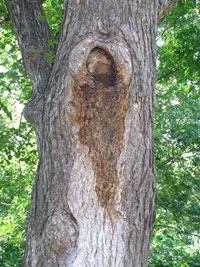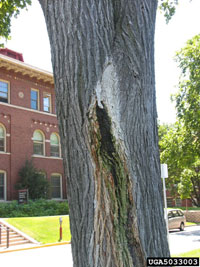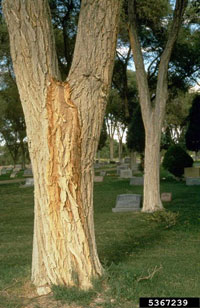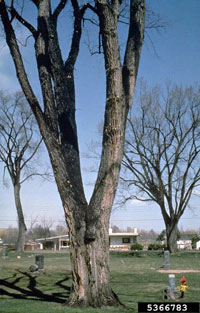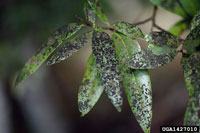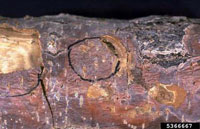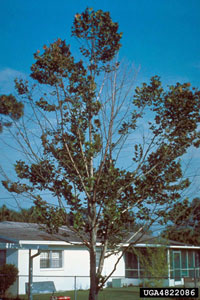Extension > Garden > Diagnose a problem > What's wrong with my plant? > Deciduous Trees > Elm > Discolored bark on branch or trunk
Elm > Trunk/Branches > Discolored bark on branch or trunk
1 of 3
Wetwood or slime flux
Several species of bacteria
- Streaks or columns of water-soaked discoloration of bark on the trunk or branches that is gray to yellow-brown when dry and black to brown when wet
- Discoloration commonly starts at bark cracks, wounds, or branch unions
- Fluid may ooze or bleed out of openings in the bark and may have a yeast-like odor
- Avoid wounding the tree
- Protect the tree from other stresses, especially soil compaction from vehicles or pedestrians
- More information on wetwood
2 of 3
Sooty mold
- Black, brown, or gray soot-like covering on leaf surfaces, or twigs
- Sticky, shiny secretions on leaves from sap-sucking insects (aphids, leaf hoppers, psyllids, etc.)
- Insects or signs of insect damage (distorted, pin-prick feeding marks, etc.) may be seen on leaves above the worst affected moldy areas
- More information on Sooty mold
3 of 3
Botryodiplodia canker
Botryodiplodia ulmicola
- Reddish brown to black water soaked cankers form on branches 4 inches in diameter or smaller
- Sap wood underneath the canker is reddish brown
- Leaves growing beyond the canker turn yellow and wilt (Siberian elm) or fall off (American elm)
- Clumps of sprouts or shoots develop below cankers on large branches
- Tiny raised pimple like fungal structures form on branches killed by the canker, causing bark to look rough
- Damage is most severe on trees stressed by other factors
- More information on canker



